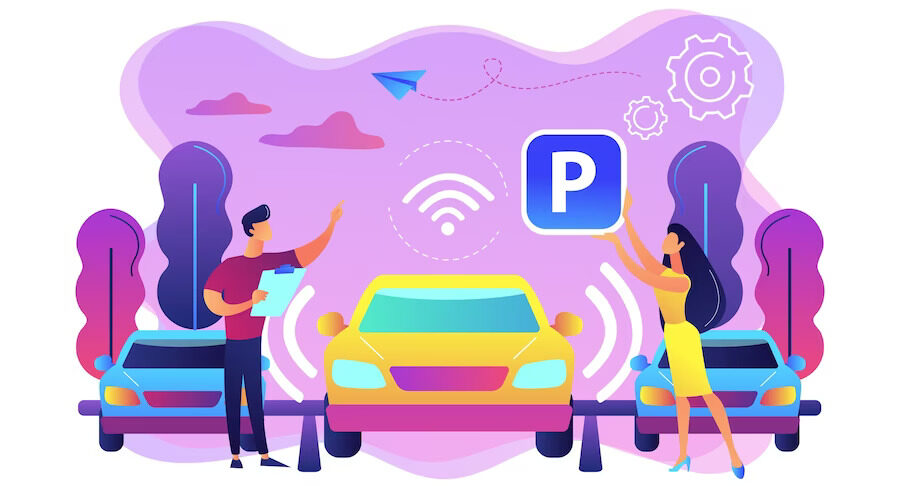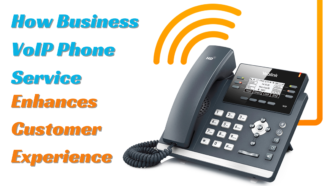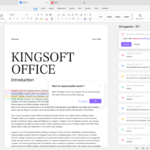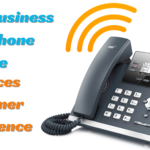How Corporate Parking Technology is Making Every Spot Count
- 1 Top 7 ways in which corporate parking technology makes every Spot count
- 1.1 Automatic parking systems
- 1.2 Mobile apps
- 1.3 Smart parking sensors
- 1.4 Parking guidance systems
- 1.5 License plate recognition
- 1.6 Mobile parking payments
- 1.7 Smart parking meters
- 2 Why is there a need to invest in parking technologies today?
- 2.1 Reduce operational expenses while boosting productivity
- 2.2 Boost income possibilities with dynamic pricing
- 2.3 Minimize driver annoyance and find parking more quickly
- 2.4 50% reduction in CO2 emissions
- 2.5 Future-proof cloud-based and open API-based solutions
- 2.6 There’ll be imaginative parking alternatives in future as technology keeps evolving
- 2.6.1 About Author-
Recent years have witnessed tremendous developments in parking technology, partly due to the rising demand for parking spots in metropolitan areas. New parking technologies have arisen with the emergence of smart cities and the Internet of Things (IoT). This makes parking more comfortable, efficient, and environmentally friendly.
Corporate parking technology is transforming enterprises’ management of parking lots and garages. Using cutting-edge technology, businesses maximize their parking resources and guarantee that every place is utilized.
Top 7 ways in which corporate parking technology makes every Spot count
These are a few examples of how corporate parking technology makes every spot count.
Automatic parking systems
Automated parking systems are intended to increase parking spot use and minimize the time and effort necessary to park a car. These systems automate vehicle locating and parking using modern sensors, cameras, and software. These devices are especially beneficial in highly populated regions with little parking space. Automated parking systems provide the benefits of being environmentally friendly and space-efficient.
Automated parking solutions are gaining popularity in metropolitan locations with little available space. These systems use robots and computer vision technologies to park and retrieve automobiles without a driver. The motorist leaves their vehicle in a defined place, and the system automatically parks it. When the driver returns, they use a mobile app to request their vehicle, and the system immediately fetches it.
Mobile apps
Several businesses now use smartphone applications to manage their parking spaces. An office parking lot app allows employees to book a parking spot ahead, allowing them to plan their day better and avoid searching for a parking spot. These applications provide employees with real-time parking availability information, allowing them to locate a place swiftly.
Smart parking sensors
Intelligent parking sensors identifies the presence of a car in a parking space. Magnetostrictive fields, ultrasonic waves, and infrared signals are utilized by these sensors to detect the presence of a car. These devices are often positioned beneath the parking lot surface. The data from these sensors generate real-time maps of available parking spots, allowing cars to find a place quickly and effectively.
Parking sensors are currently one of the most widely used parking devices. They’re meant to detect the presence of a car in a parking space and are often mounted on the pavement or a post. When a vehicle is identified, the sensor transmits a signal to a control unit, which activates an indicator light or a sign, alerting vehicles that a parking space is occupied. This system applies to both indoor and outdoor parking lots.
Parking sensors offer real-time data on parking spot utilization. This data assists businesses in optimizing the usage of their parking spaces by detecting which spaces are underutilized and which are in high demand. By examining this information, companies modify their parking policy and pricing to guarantee that all parking spaces are used efficiently.
Parking guidance systems
The purpose of parking guidance systems is to lead motorists to available parking places. With cameras, sensors, and parking management software, these systems locate open parking spaces. They relay that information in real-time via digital displays, directing cars to the closest place. Both interior and exterior installations are possible, and the systems are linked to parking reservation app.
Parking guidance systems
- assist drivers in locating parking spots more quickly
- minimize traffic congestion
- enhance safety by lowering the number of cars circling in search of a parking place.
License plate recognition
Using license plate recognition technology, cars entering and exiting parking lots are identified and tracked. LPR captures and compares photos of license plates to a database of registered vehicles using cameras and software. This technology is used to automate the parking payment and ticketing procedure and scan parking areas for security reasons. License plates are scanned at the entrance of parking garages and garages and compared to a database of registered automobiles. If the car is unregistered, a citation is automatically issued. As a vehicle leaves a parking garage, the parking cost is immediately deducted from its owner’s account by scanning the car’s license plate.
Mobile parking payments
Mobile parking payments allow motorists to pay for parking using mobile devices. This technology is especially beneficial for drivers without cash or credit cards. Without physically returning to the parking garage, drivers now use their cell phones to
- pay for parking
- monitor their parking time
- receive reminders when their allotted time expires
This technology is often implemented into current parking meters and parking ticket machines since it’s practical, quick, and secure.
Smart parking meters
Smart parking meters are better than regular ones because they use modern technology to make parking more manageable and efficient. They accept credit cards, mobile payment apps, and cash as payment methods.
With smart parking meters, employers assess workers’ fees according to the time they occupy a parking space. Employees are encouraged only to park when needed, making parking spaces available for those who arrive later. In addition, smart meters charge varying rates for various vehicle types, such as electric vehicles and large trucks.
Why is there a need to invest in parking technologies today?
Parking management is essential since it demonstrates concern for your clients and staff. When you rent parking spaces and keep your lot in good condition, your business appears more professional, and you’re willing to invest in your property.
Reduce operational expenses while boosting productivity
Operational expenses have an immediate effect on the profitability of a corporation. The administration of parking lots and garages is a substantial operating expense for specific organizations. Still, with an intelligent parking solution, these firms decrease operating expenses and boost operational efficiency. Parking guidance technology is a necessity for intelligent parking.
The technique employs precise infrared sensors and Bluetooth technologies to
- monitor parking lots
- ocate free spaces
- direct cars to them
This lessens the strain on garages and ventilation systems and their energy expenses. In addition, no workers are required to operate the system, saving staffing expenses.
Boost income possibilities with dynamic pricing
Does your company notice an increase in demand during peak hours or on specific days of the week? Smart parking enables company owners to comprehend driving trends and use existing parking spots to maximize income during peak and off-peak hours. With parking technology’s real-time data management system, company managers leverage unrealized income prospects.
Minimize driver annoyance and find parking more quickly
The average American spends 17 hours per year finding parking, which costs each vehicle $345 in wasted time, gasoline, and pollutants. In urban areas, the situation is worse. It takes cars an average of 20 minutes to find a parking spot, causing 33% of city traffic to be caused by individuals hunting for parking. Intelligent parking technology facilitates parking by reducing the time spent searching for a spot. Drivers spend comparatively less time searching for parking in premises equipped with smart parking technologies. Parking is the first and final thing customers remember about their interaction with a business.
50% reduction in CO2 emissions
Not only is lowering your carbon footprint beneficial for the environment, but it’s also an excellent business. According to a 2015 Nielsen report, businesses that displayed a commitment to sustainability increased by more than 4% worldwide, while those that didn’t gain by less than 1%. Using dependable parking assistance and sensor systems, the companies are able to speed up the parking process for cars, hence lowering harmful CO2 emissions.
Future-proof cloud-based and open API-based solutions
You need to make this your final purchase of parking management technology. Ensure that your smart parking supplier has an open platform that permits third-party connections and regular software upgrades. This helps parking operators continue to deliver superior service.
There’ll be imaginative parking alternatives in future as technology keeps evolving
Parking technology has advanced significantly in recent years, with new developments making parking more manageable, efficient, and eco-friendly. These innovations, including automatic parking systems and mobile parking fees, have revolutionized how we park automobiles. As cities continue to expand and the need for parking spots rises, parking technology will undoubtedly play a greater role in keeping our urban areas more habitable and ecological.
Parking management is essential for organizations of all sizes. It helps you save money and boost customer happiness. Aso, parking software reduces employee turnover and gives your company a more professional appearance. You should immediately begin if you still need to manage your parking lot.
About Author-
Fatema Aliasgar is an experienced B2B and SaaS content writer based in Mumbai, India. She has done her Master’s in Business Management and has written B2B content for eight years. She likes to read non-fiction and play board games with her kids during her free time.


















